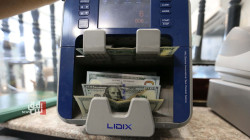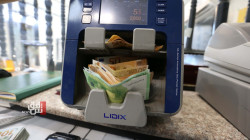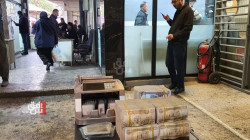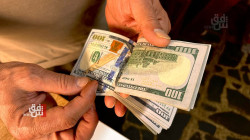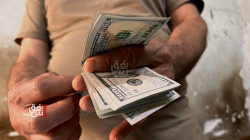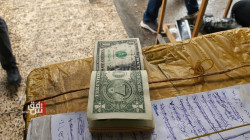Iraqi economists clash over dollar stability in the thick of financial challenges
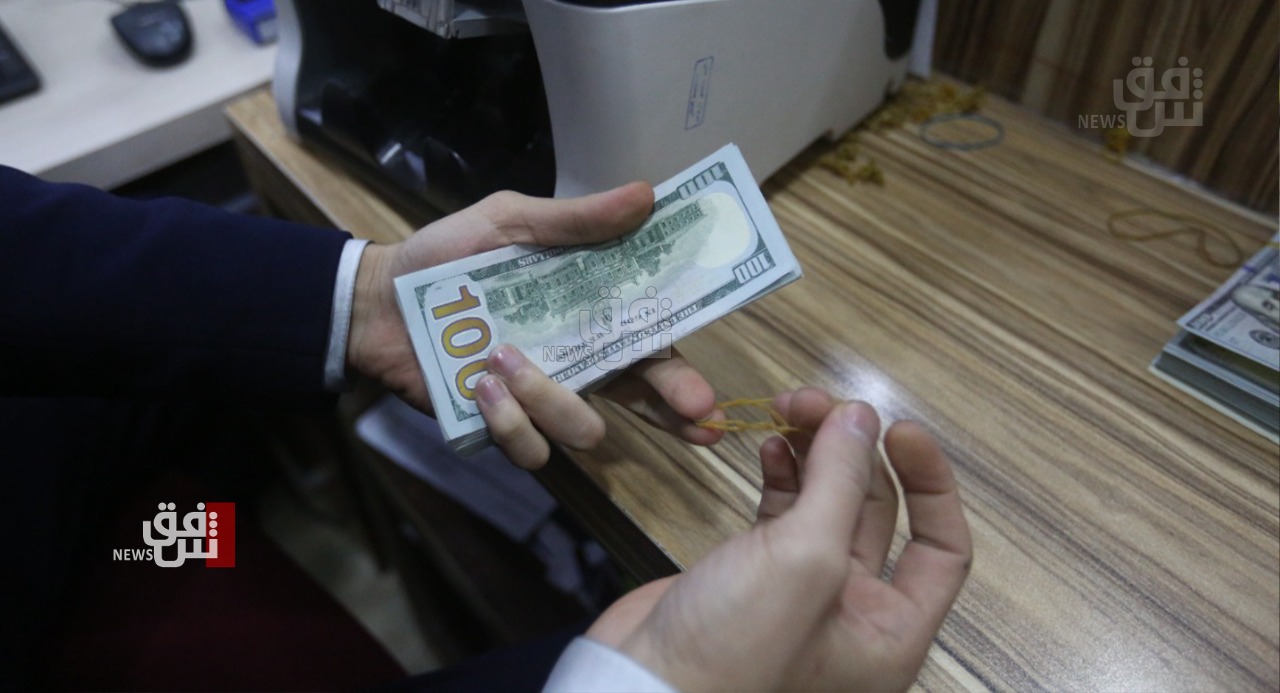
Shafaq News/ Iraqi Prime Minister's financial advisor Mudhher Muhammad Salih has sparked controversy among financial experts by disputing claims of the US dollar's stability against the Iraqi dinar.
What Salih Said?
While Salih asserted that the dollar's stability is "real and solid," the economists argue that this perceived stability is "unreassuring" and contingent upon the dollar returning to the Central Bank's official rate.
Salih stated to Shafaq News Agency, "The exchange rate of the dollar to the dinar in today's parallel market holds no significant impact on the overall price stability, which has been maintained due to the influence of the current official exchange rate used for foreign trade financing, set at 1,220 IQD per dollar. This stable exchange rate supports the dinar's external value, reflected in the relative price stability of goods and services."
"Given the strong foreign reserves backing the dinar, valued at over $100 billion—the highest in Iraq's history—the official exchange market will continue to dominate, mitigating any misinformation or political turbulence affecting the parallel exchange market."
He explained, "Following the legal decline of dollarization in domestic transactions, particularly in contracts and payments since last year, the parallel exchange market now has minimal impact, affecting only a narrow scope of prohibited transactions in non-regulated markets, accounting for 10% of total currency demand and supply."
Salih concluded, "Therefore, the current stability of the dinar, even in secondary markets, is genuine and robust, derived from the effective coordination of monetary and fiscal policies that ensure overall price stability and contain inflationary expectations previously influenced by the parallel exchange market."
Economists' Views on Dollar Stability
Economic researcher Ali Abdul-Kadhim explained to Shafaq News that true stability for the dollar would only be achieved when it returns to the Central Bank's official rate. "The current rate is over 15 points higher than the official budget rate, indicating a lack of true stability. The reduced volatility in the parallel market is due to various factors, including increased dollar availability for Hajj pilgrims."
He added that the recent budget implementation and increased Central Bank dollar sales have also played roles in this temporary stability. "The budget has just started to be executed this month, and this impacts the market. Additionally, the Central Bank's increased dollar sales and the market recession, which reduces import operations, have all contributed to the current low volatility of the dollar. True stability will occur when the dollar aligns with the official rate."
Economist Karim Al-Hilu concurred with Abdul-Kadhim on the issue of dollar instability, attributing it to temporary factors.
"The dollar situation in Iraq is fundamentally about supply and demand. When bank transfers abroad increase without obstacles, dollar demand decreases, leading to a lower exchange rate. Conversely, when there are hurdles in Iraqi banks, especially concerning Iran—which exports $13 billion worth of goods annually to Iraq and needs hard currency for transactions—or other regions without established platforms, this requires accessing the market," Al-Hilu told Shafaq News Agency.
Al-Hilu explained that this stability is temporary and lasts only for a few days. "There are dollar mafias with large amounts of dollars that they release into the market, causing the price to drop. Then they buy it back, reducing the supply, which increases demand and raises the price again," he said.
He pointed out that the budget has not yet been released, and many projects are stalled due to the delay in receiving advances. "Although the Prime Minister recently approved the release of these advances, they are taking time to process due to bureaucratic procedures. As a result, the demand for imported goods has decreased, leading to a reduced demand for dollars. This situation has created a kind of stability in the market," he explained.
He added that Iraq imports 90% of its goods from abroad, most of which are paid for in dollars. "Some countries have established platforms, and the Central Bank's remittances amount to $280 million, which is a substantial sum. Additionally, factors such as citizens traveling for Hajj and the summer vacation for sixth-grade students not yet starting have all contributed to a reduced demand for dollars…Therefore, all these factors contribute to the dollar experiencing periods of calm and stability. It previously dropped to 144 but then rose again to 148. The difference from the official rate of 1,320 is more than 15 points, indicating that this is not stability."
"True stability was seen when it was around 1,120 at the Central Bank and 1,121 abroad. This stability persisted for years, and strategic projects were planned based on a dollar rate of 1,121. However, after former Prime Minister Mustafa al-Kadhimi raised the dollar exchange rate against the dinar and current Prime Minister Mohammed Shia Al-Sudani reinstated it, fluctuations continued due to the presence of mafias, political lobbies, and party-affiliated banks involved in the dollar issue."
Al-Hilu concluded, "This stability is not reassuring or natural; it is merely periods of specific conditions related to imports, travel, and all factors associated with the outflow of dollars from Iraq."
In addition, Iraqi economic expert Diaa Mohsen has denounced claims of stability in the US dollar exchange rate within the local market, labeling them as falsehoods perpetuated by government insiders attempting to mislead the public.
Mohsen pointedly criticized the administration, noting that "despite assurances from the Prime Minister's office to reduce the dollar's exchange rate against the Iraqi dinar, these promises have failed to materialize."
Speaking to Shafaq News Agency, Mohsen attributed the ongoing rise in the US dollar's exchange rate in Iraq to a combination of factors that the Central Bank has struggled to address effectively. "The Central Bank is fully aware of the reasons behind this increase, which is a catastrophe in itself," Mohsen asserted, "but it has been unable to confront those responsible."
Highlighting systemic issues within Iraq's financial governance, Mohsen lamented the lack of accountability and transparency surrounding the Central Bank's handling of public funds. "The Central Bank of Iraq is entrusted with safeguarding the Iraqi people's wealth, yet its failure to monitor and control these funds constitutes a breach of trust."
Moreover, he dismissed claims of US dollar stability in Iraq's local market, attributing recent declines during the Eid al-Adha holiday to temporary factors. Mohsen highlighted alternative tactics employed by Iraqi traders, such as purchasing and smuggling gold, to circumvent currency restrictions.
Mohsen expressed skepticism regarding the effectiveness of monetary and executive measures in controlling the dollar's exchange rate, citing ongoing challenges in curbing currency smuggling. He predicted a fluctuation between 1,450 and 1,500 IQD per US dollar in the foreseeable future.
Based on the insights of economic expert Abdul Rahman al-Shaikhly, fluctuations in the US dollar exchange rate in Iraq are deemed natural occurrences influenced by various factors, including the return of pilgrims from Hajj.
Speaking to Shafaq News Agency, al-Shaikhly emphasized that the exchange rate will likely continue oscillating between 1,450 and 1,500 IQD regularly, describing such fluctuations as normal.
He pointed out that external residents exert some control over the currency by buying and selling dollars in response to internal developments, exploiting opportunities to manipulate its price.
While acknowledging this phenomenon as commonplace globally, its prominence in Iraq may be more noticeable due to recent experiences. Nevertheless, he suggested that sustained fluctuations over an extended period could warrant concerns as abnormal occurrences.
